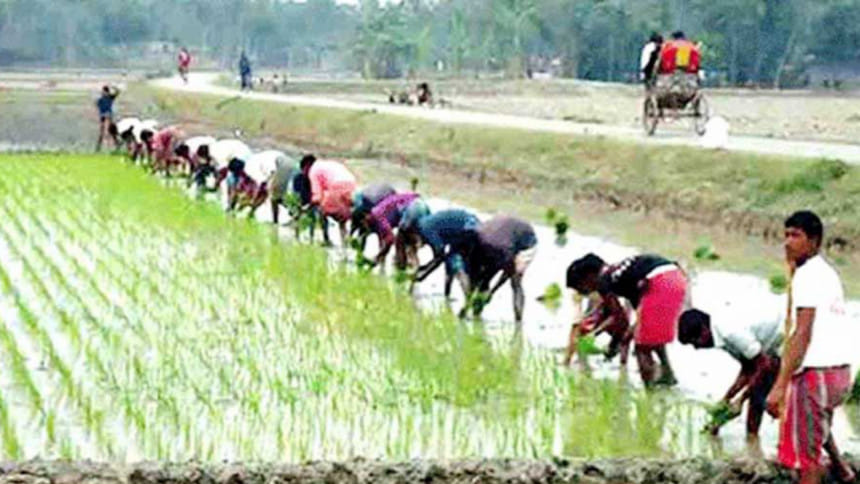Boro cultivation on in full swing as growers ignore biting cold

Farmers in the northern district are passing busy time for planting Boro seedlings, ignoring the biting cold during the peak cultivation season.
Frequent cold spells this season affected Boro seedbeds, and cold injuries caused drying of tender seedlings in some areas.
The growers, however, started transplanting the seedlings earlier to avert possible nor’wester and hailstorm prior to harvest.
But they have to count higher production cost due to various factors this season.
“Farm labourers demand high wages for transplanting seedlings as they have to work in cold weather. They cannot stay in the icy cold water in fields for long hours, and so, more labourers are needed for the work,” said Afzal Hossain, a farmer of Kabiler Bazar in Sadar upazila.
Solvent farmers set irrigation pumps at their own cost, but the small farmers and sharecroppers have to purchase irrigation water from pump owners on condition of paying one fourth of the crop after its harvest, said locals.
Abdus Sattar, a farmer of Chapadaha village in Sadar upazila, said Tk 9,000 to 10,000 has to be spent for Boro farming on one bigha of land and the yield usually ranges from 25 to 28 maunds (a maund = 40 kg) per bigha.
“Last year’s Boro price was Tk 500 to 550 per maund while the price is below Tk 500 now. And so, growers get very little benefit from Boro cultivation,” he said.
If the government arranges purchase of food grains directly from farmers, they would get fair price of crops including Boro, he added.
“Farmers are eager to start Boro farming earlier to get high yield, as late farming of the crop often leads to lesser yield. Besides, there is chance of natural disasters like nor’wester and hailstorm in summer,” said Saidur Rahman, another grower of the same village.
In Gaibandha Sadar upazila, 18 thousand hectares of land have been brought under Boro cultivation this season, which is 500 hectares more than last year’s, said Al-Emran, upazila agriculture officer.

 For all latest news, follow The Daily Star's Google News channel.
For all latest news, follow The Daily Star's Google News channel. 



Comments